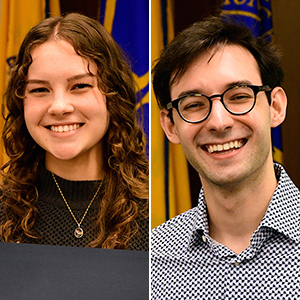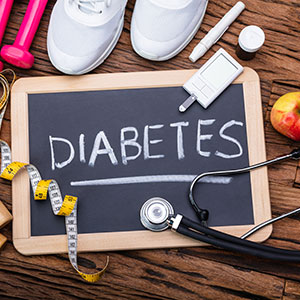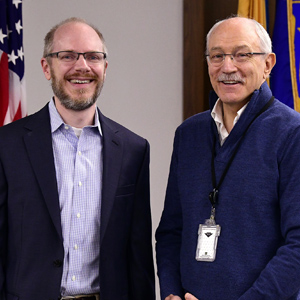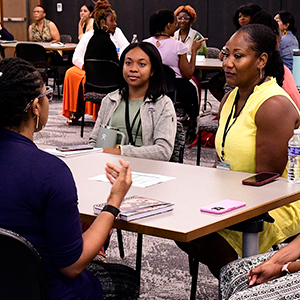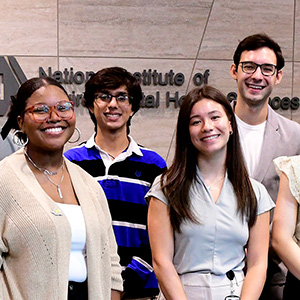The NIEHS Diversity Speaker Series event held Nov. 7 recognized and acknowledged the Deaf community as part of National Disability Employment Awareness Month. Céline Dazé, a principal strategist for people with disabilities with the National Institutes of Health (NIH) Office of Equity, Diversity, and Inclusion (EDI), discussed the importance of including deaf employees in government positions and spoke about Deaf culture, the importance of language, and challenges she faced.
“I want to make sure that people know that disabled people are equal to everybody else,” said Dazé, who presented using American Sign Language (ASL) translated by an interpreter. “What we're doing here is not meant to be short-term. It is the continuation of the work to overcome stigmas, especially in the federal government.”
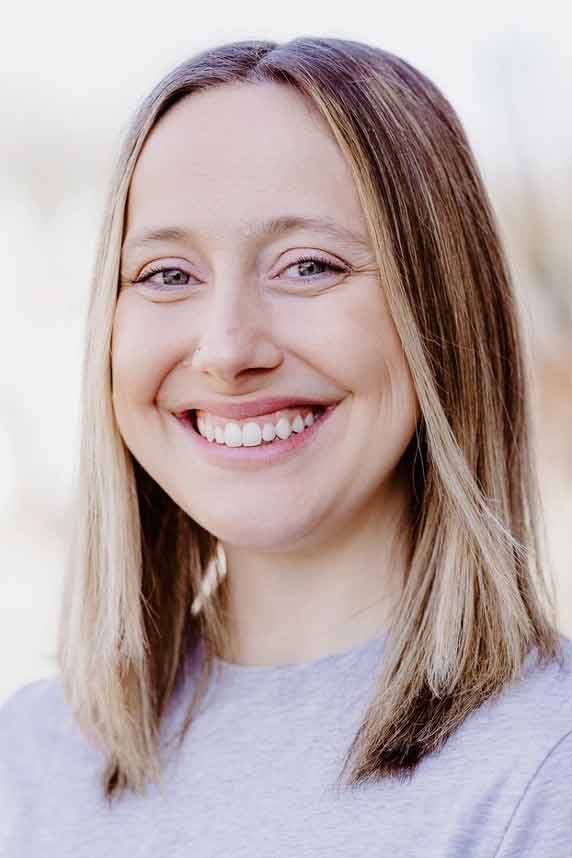
Early influences
Dazé’s family inspired her to pursue a government career. Her stepfather, who is also deaf, is a 42-year veteran of the Internal Revenue Service (IRS). During his tenure, he worked with interpreters in the field and forged a path for other deaf employees.
“He broke barriers at the IRS,” said Dazé. “He was part of that change, which inspired me to want to do the same.”
In her first job as a professional, Dazé faced obstacles she had never experienced before. People were unfamiliar with Deaf culture, language, and interpreters. Co-workers often misunderstood when Dazé communicated through her interpreter, mistakenly believing the interpreter was the one doing her workload. However, the interpreter's role was solely to facilitate the exchange of information between Dazé and her co-workers.
“I faced so many ableist challenges,” she said. “It was a huge struggle.”
The right fit
Dazé moved to the Food and Drug Administration (FDA) in 2019. A supervisor there was more familiar with the challenges of being deaf in the office and asked how she could best accommodate Dazé’s needs. The experience helped Dazé realize how access is supposed to feel as a deaf person.
At the FDA, Dazé joined the Advisory Committee for Employees with Disabilities. Eventually, she became the chairperson for the Accessibility and Reasonable Accommodations sub-committee, a group that helps overcome barriers that people with disabilities may face in the workplace. Still, she was the only deaf person in the office.
“It was hearing-centric, and I was the only person with the accommodations,” she said.
When a position opened at NIH, she applied and became a strategist, where she continues to help others with disabilities. In her new role, she reports to David Rice, branch director of the NIH EDI Special Emphasis Programs, who is also deaf.
Important work
The list of Dazé’s responsibilities is long. She conducts ableism training, networks, and reaches out to universities with students with disabilities. She spearheads awareness campaigns for Disability Awareness Month, reviews legal compliance, and works on the development of the yearly MD-715 report, among many other tasks.
As awareness of the Deaf community and accessibility grows, more people who are deaf will be able to get jobs in fields such as science, technology, engineering, and mathematics (STEM) research, said Dazé. Currently, the biggest barrier to entry for deaf people is interpreters knowledgeable in STEM.
“Deaf scientists are fighting to make sure that they have 100% accessibility when it comes to that kind of knowledge and skills,” she said. “We need more deaf individuals in STEM. That community needs to grow.”
(Susan Cosier is a contract writer for the NIEHS Office of Communications and Public Liaison.)





